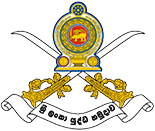INDIA has welcomed the initial steps taken by the Sri Lankan Government to relax movement and travel restriction on IDPs. It also expressed the hope that the IDPs would resume their livelihood and return to a life of normality. This observation was contained in a joint press statement on the visit of a high level Sri Lankan delegation to India on December 9 and 10.
Following is the full text of the joint statement:
Senior Presidential Advisor Basil Rajapaksa MP, Secretary to the President Lalith Weeratunga and Defence Secretary Gotabhaya Rajapaksa visited New Delhi on December 9 and 10 and met with National Security Adviser M. K. Narayanan, Foreign Secretary Nirupama Rao and Defence Secretary Pradeep Kumar. They also called on External Affairs Minister S. M. Krishna.
Both sides reviewed the ongoing relief, rehabilitation and resettlement efforts in Northern Sri Lanka. The Sri Lankan side mentioned that more than 158,000 Internally Displaced Persons (IDPs) have since left the camps and around 115,000 remained. The Sri Lankan side detailed to the Indian side the steps initiated to resettle the IDPs in their original places of habitation.
They indicated their resolve to resettle the IDPs before end-January 2010. Welcoming the initial steps taken by the Government of Sri Lanka to relax movement and travel restrictions on IDPs, the Indian side expressed the hope that the IDPs would resume their livelihood and return to a life of normalcy.
The Sri Lankan side thanked India for the substantial assistance being provided by India for the rehabilitation of the Internally Displaced Persons. Both sides expressed satisfaction at the commendable work done by the 60-member Indian Field Hospital at Menik Farm, Vavuniya, where more than 50,000 patients were treated.
The contribution of 2.5-lakh family packs sent by the Government of Tamil Nadu to the IDPs was appreciated.
The Indian side emphasized that, with a view to ensure the return of the IDPs to their homes and resumption of their livelihood, it had enhanced the number of Indian de-mining teams in the area, provided additional quantity of shelter material and agricultural starter packs and was now in the process of providing cement bags for reconstruction of damaged houses of IDPs. These gestures were welcomed by the Sri Lankan side.
Both sides recognized the importance of sustaining peace and moving towards a political solution in Sri Lanka. The Indian side welcomed the holding of local elections in Jaffna and Vavuniya. Both sides agreed on the need for political arrangements which would serve the legitimate interests and meet the aspirations of all Sri Lankan citizens. The Sri Lankan side reiterated the commitment of the Government of Sri Lanka to a political process that would lead to lasting peace and reconciliation.
Both sides agreed on the need for restoration of infrastructure and services in the North and East Sri Lanka and welcomed the participation of Indian companies in these projects.
Both sides expressed satisfaction at the visit of a delegation of Tamil Parliamentarians to Sri Lanka and the access given to them by Sri Lanka to visit IDP camps in Vavuniya. The delegation had also visited Jaffna and the Up-country areas. They called on President Mahinda Rajapaksa.
Noting the salutary effect, which the October 2008 Joint Statement on Fishing Arrangements has had on issues relating to fishing, the two sides agreed to continue to adhere to these arrangements and also agreed to convene the Joint Working Group on Fishing Cooperation to continue discussions on the draft MOU to put in place an institutional arrangement. (Courtesy: Daily News)

